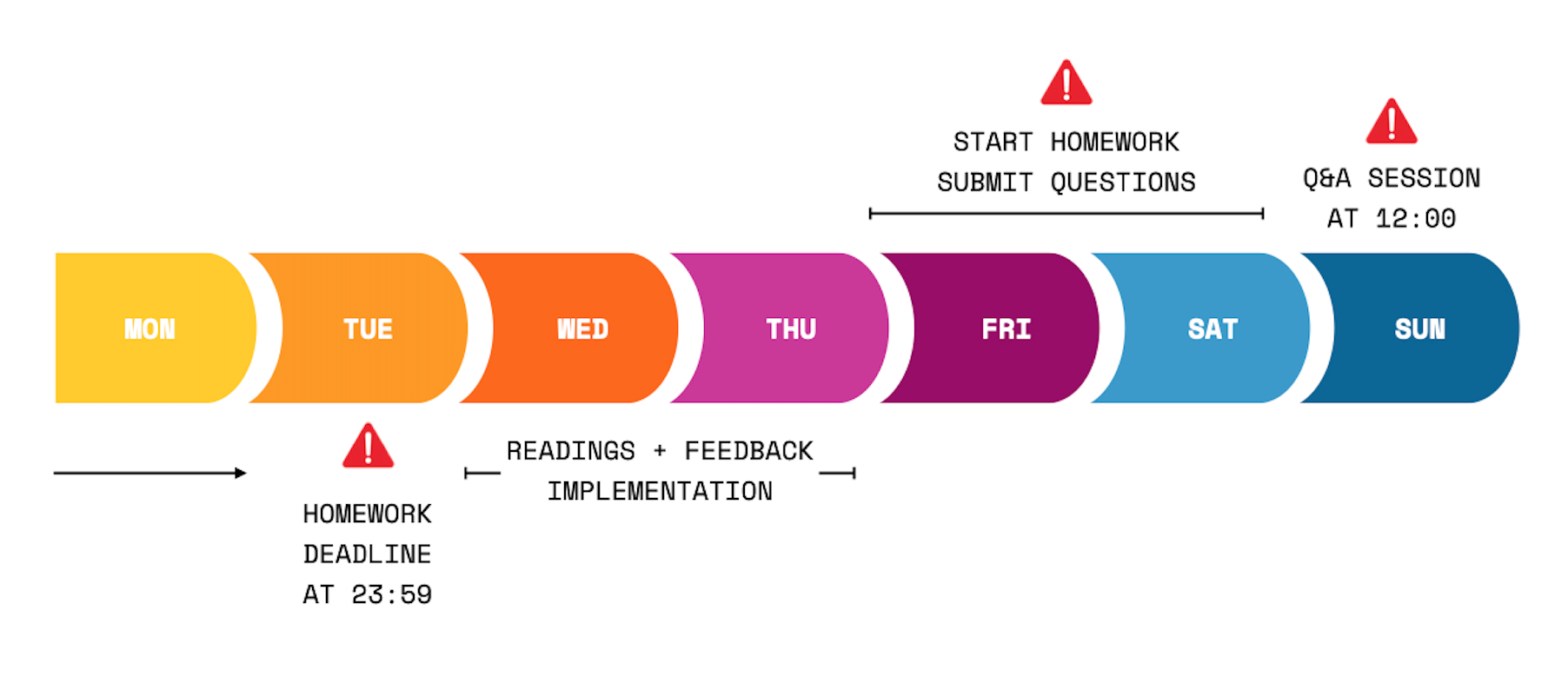If you are following the HackYourFuture curriculum we recommend you to start with module 1: HTML/CSS/GIT. To get a complete overview of the HackYourFuture curriculum first, click here.
Please help us improve and share your feedback! If you find better tutorials or links, please share them by opening a pull request.
Welcome to the React module! Congratulations on making it this far!
In these 4 weeks we will go back to the frontend and learn how to make faster, more modern user interfaces. In the HTML and JavaScript modules you've learned all about creating webpages that that hold unchanging data. No matter who is using the website, the data will always be the same. We call this a static website. At the same time you've build various HTML pages so the user is able to access various parts of the website. We call this a multi-page application (MPA)
In the Node.js module you've learned about how to change the content of the page, based on the user's input, using a templating engine. Type in a keyword and the server sends back a template with customized data. We call this a dynamic website. However, we did it in such a way were we still had to send different pages to the client depending on the URL (for example, / or /users). This is also an MPA.
In this module, however, you'll learn how to make more complex websites. Though, we won't be calling them websites anymore: they'll be web applications. They're not just informational, but allow the user to interact with it. This similar to any application on your desktop. These React applications will also deal with dynamic data: its state changes depending on who's using it.
Besides being dynamic, React applications also are single page applications (SPA). Essentially, this means that on loading the whole application (every page and its contents) is accessible to the user, without the need to send requests to the server to get another page.
In order to properly work through this module smoothly we're going to use software that will allow us to write React applications with ease. It's called create-react-app.
Go to your command line and execute the following:
npm install -g create-react-appNow verify that you have it by executing the following:
create-react-app --versionIt should be at least version 2.1.x.
In order to successfully complete this module you will need to master the following:
- Understand the React way of thinking about
user interfaces - Know the importance and place of
stateand how to pass it down - Be able to work with different
hooksand even create your own - Recognize the utility of
modularization - Putting emphasis on writing reusable code (
components) - How to handle
client-side routing
This repository consists of 3 essential parts:
README: this document contains all the required theory you need to understand while working on the homework. It contains not only the right resources to learn about the concepts, but also lectures done by HackYourFuture teachers. This is the first thing you should start with every weekMAKEME: this document contains the instructions for each week's homework. Start with the exercises rather quickly, so that you can ground the concepts you read about earlier.LESSONPLAN: this document is meant for teachers as a reference. However, as a student don't be shy to take a look at it as well!
Let's say you are just starting out with the Databases module. This is what you do...
- The week always starts on Wednesday. First thing you'll do is open the
README.mdfor that week. For the first week ofDatabases, that would be Week1 Reading - You spend Wednesday and Thursday going over the resources and try to get a basic understanding of the concepts. In the meanwhile, you'll also implement any feedback you got on last week's homework (from the Node.js module)
- On Friday you start with the homework, found in the
MAKEME.md. For the first week ofReact, that would be Week1 Homework - You spend Friday and Saturday playing around with the exercises and write down any questions you might have
- DEADLINE 1: You'll submit any questions you might have before Saturday 23.59, in the class channel
- On Sunday you'll attend class. It'll be of the Q&A format, meaning that there will be no new material. Instead your questions shall be discussed and you can learn from others
- You spend Monday and Tuesday finalizing your homework
- DEADLINE 2: You submit your homework to the right channels (GitHub) before Tuesday 23.59. If you can't make it on time, please communicate it with your mentor
- Start the new week by going back to point 1!
In summary:
To have a more detailed overview of the guidelines, please read this document or ask your mentor/class on Slack!
| Week | Topics | Reading Materials | Homework |
|---|---|---|---|
| 1. | What is React, JSX, State & Props, Deploy a static site | Readings W1 | Homework W1 |
| 2. | API calls, Testing | Readings W2 | Homework W2 |
| 3. | Client-side routing, Context, Custom hooks | Readings W3 | Homework W3 |
| 4. | Project! | Readings W4 |
Did you finish the module? Impressive!
If you feel ready for the final challenge, click here to go to Project!
The HackYourFuture curriculum is subject to CC BY copyright. This means you can freely use our materials, but just make sure to give us credit for it :)
This work is licensed under a Creative Commons Attribution 4.0 International License.


